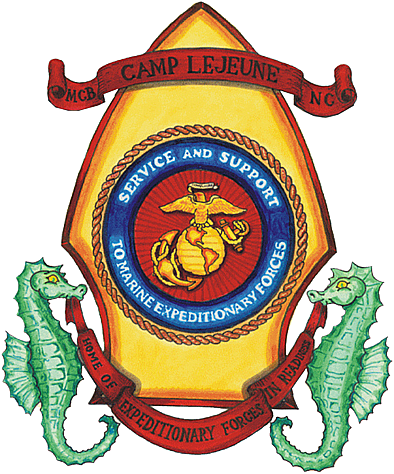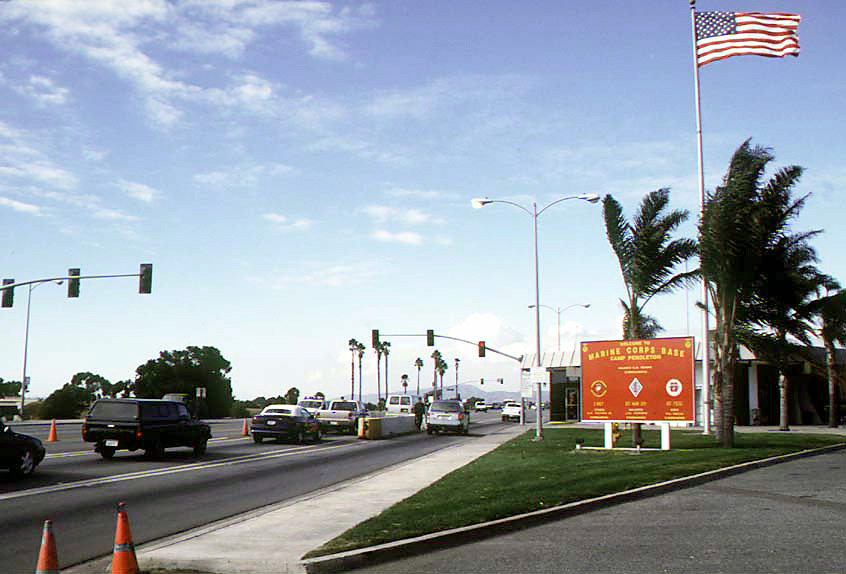|
Correctional Custody Unit
The Correctional Custody Unit (CCU or ''Remotivation Platoon'') is a disciplinary program in the United States Marine Corps under which "salvageable" offenders are provided "re-education, refocusing and re-greening". The intent of the program is to resolve disciplinary issues without more serious recourse like confinement to the brig or a court martial. In 2002, it was reported that three Marine bases had a CCU: Camp Hansen (Okinawa), Camp Lejeune (North Carolina), and Camp Pendleton Marine Corps Base Camp Pendleton is the major West Coast base of the United States Marine Corps and is one of the largest Marine Corps bases in the United States. It is on the Southern California coast in San Diego County and is bordered by ... (California). References Further reading *{{cite news, url=http://www.salem-news.com/articles/march282011/usmc-mutiny-tk.php, publisher=Salem News, date=28 March 2011, author=Tim King, title=Confessions of a Marine Corps Mutineer category:Military j ... [...More Info...] [...Related Items...] OR: [Wikipedia] [Google] [Baidu] |
United States Marine Corps
The United States Marine Corps (USMC), also referred to as the United States Marines or simply the Marines, is the maritime land force service branch of the United States Department of Defense. It is responsible for conducting expeditionary and amphibious operations through combined arms, implementing its own infantry, artillery, aerial, and special operations forces. The U.S. Marine Corps is one of the six armed forces of the United States and one of the eight uniformed services of the United States. The Marine Corps has been part of the United States Department of the Navy since 30 June 1834 with its sister service, the United States Navy. The USMC operates installations on land and aboard sea-going amphibious warfare ships around the world. Additionally, several of the Marines' tactical aviation squadrons, primarily Marine Fighter Attack squadrons, are also embedded in Navy carrier air wings and operate from the aircraft carriers. The history of the Marine ... [...More Info...] [...Related Items...] OR: [Wikipedia] [Google] [Baidu] |
Brig (prison)
A military prison is a prison operated by a military. Military prisons are used variously to house prisoners of war, unlawful combatants, those whose freedom is deemed a national security risk by the military or national authorities, and members of the military found guilty of military offenses. There are two types: penal and confinement-oriented, where captured enemy combatants are confined for military reasons until hostilities cease. Most militaries have some sort of military police unit operating at the divisional level or below to perform many of the same functions as civilian police, from traffic-control to the arrest of violent offenders and the supervision of detainees and prisoners of war. Australia The Australian Defence Force states it has no prisons. Instead they have a single facility, the Defence Force Correctional Establishment, which aims to rehabilitate members who have been sentenced to detention for breaching military regulations or law; employees of the esta ... [...More Info...] [...Related Items...] OR: [Wikipedia] [Google] [Baidu] |
Court Martial
A court-martial (plural ''courts-martial'' or ''courts martial'', as "martial" is a postpositive adjective) is a military court or a trial conducted in such a court. A court-martial is empowered to determine the guilt of members of the military, armed forces subject to Military justice, military law, and, if the defendant is found guilty, to decide upon punishment. In addition, courts-martial may be used to try prisoner of war, prisoners of war for war crimes. The Geneva Conventions require that Prisoner of war, POWs who are on trial for war crimes be subject to the same procedures as would be the holding military's own forces. Finally, courts-martial can be convened for other purposes, such as dealing with violations of martial law, and can involve civilian defendants. Most navies have a standard court-martial which convenes whenever a ship is lost; this does not presume that the captain is suspected of wrongdoing, but merely that the circumstances surrounding the loss of t ... [...More Info...] [...Related Items...] OR: [Wikipedia] [Google] [Baidu] |
Camp Hansen
Camp Hansen is a United States Marine Corps base located in Okinawa, Japan. The camp is situated in the town of Kin, near the northern shore of Kin Bay, and is the second-northernmost major installation on Okinawa, with Camp Schwab to the north. The camp houses approximately 6,000 Marines nowadays, and is part of Marine Corps Base Camp Butler, which itself is not a physical base and comprises all Marine Corps installations on Okinawa. Camp Hansen is named for Medal of Honor recipient Dale M. Hansen, a Marine Corps private who was honored for his heroism in the fight for Hill 60 during the Battle of Okinawa. Hansen was killed by a Japanese sniper's bullet three days after his actions on Hill 60. Built on the site of the former Chimu Airfield, the Camp was completed on 20 September 1965 after 29 months of construction by USN Mobile Construction Battalions 3, 9, and 11. Tenant units * Headquarters, 12th Marine Regiment * 3rd Battalion 12th Marines * 3rd Law Enforcement ... [...More Info...] [...Related Items...] OR: [Wikipedia] [Google] [Baidu] |
Camp Lejeune
Marine Corps Base Camp Lejeune ( or ) is a United States military training facility in Jacksonville, North Carolina. Its of beaches make the base a major area for amphibious assault training, and its location between two deep-water ports ( Wilmington and Morehead City) allows for fast deployments. The main base is supplemented by six satellite facilities: Marine Corps Air Station New River, Camp Geiger, Stone Bay, Courthouse Bay, Camp Johnson, and the Greater Sandy Run Training Area. The Marine Corps port facility is in Beaufort, at the southern tip of Radio Island (between the NC State Port in Morehead City, and the marine science laboratories on Pivers Island in Beaufort). It is occupied only during military port operations. Facilities Camp Lejeune encompasses 156,000 acres, with 18 kilometers of beach capable of supporting amphibious operations, 32 gun positions, 48 tactical landing zones, three state-of-the-art training facilities for Military Operations in Urba ... [...More Info...] [...Related Items...] OR: [Wikipedia] [Google] [Baidu] |
Camp Pendleton
Marine Corps Base Camp Pendleton is the major West Coast base of the United States Marine Corps and is one of the largest Marine Corps bases in the United States. It is on the Southern California coast in San Diego County and is bordered by Oceanside to the south, San Clemente in Orange County to the north, Riverside County to the northeast, and Fallbrook to the east. The base was established in 1942 to train U.S. Marines for service in World War II. By October 1944, Camp Pendleton was declared a "permanent installation," and by 1946 it became the home of the 1st Marine Division. It was named after Major General Joseph Henry Pendleton (1860–1942), who had long advocated setting up a training base for the Marine Corps on the West Coast. Today it is home to many Operating Force units, including the I Marine Expeditionary Force and various training commands. History Prior to World War II In 1769, a Spanish expedition led by Captain Gaspar de Portolá explored northwa ... [...More Info...] [...Related Items...] OR: [Wikipedia] [Google] [Baidu] |
Military Justice
Military justice (or military law) is the body of laws and procedures governing members of the armed forces. Many nation-states have separate and distinct bodies of law that govern the conduct of members of their armed forces. Some states use special judicial and other arrangements to enforce those laws, while others use civilian judicial systems. Legal issues unique to military justice include the preservation of good order and discipline, the legality of orders, and appropriate conduct for members of the military. Some states enable their military justice systems to deal with civil offenses committed by their armed forces in some circumstances. Military justice is distinct from martial law, which is the imposition of military authority on a civilian population as a substitute for civil authority, and is often declared in times of emergency, war, or civil unrest. Most countries restrict when and in what manner martial law may be declared and enforced. Canada All Comm ... [...More Info...] [...Related Items...] OR: [Wikipedia] [Google] [Baidu] |


